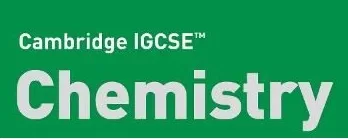🚀 Start Now to Ace IGCSE Chemistry!
One-on-one online lessons with an ODTU graduate and 25 years of teaching experience.
📞 Contact via WhatsApp Now 📅 Book a Free 40-Minute Consultation
🧪 IGCSE Chemistry Syllabus – Complete Guide (0620) | Updated for 2025
🔍 Introduction
Are you preparing for the IGCSE Chemistry (Cambridge 0620) exam? This comprehensive syllabus guide covers all the essential topics you need to study — from atomic structure to organic chemistry. Whether you’re following the Core or Extended curriculum, this page will help you understand what to expect in the IGCSE Chemistry exam.

📘 IGCSE Chemistry Topics (0620 Syllabus)
1. The Particulate Nature of Matter
Understanding solids, liquids and gases; particle theory and changes of state.
2. Experimental Techniques
Separation techniques such as filtration, crystallisation, chromatography, and distillation.
3. Atoms, Elements and Compounds
Atomic structure, chemical symbols, the periodic table, and bonding (ionic, covalent, metallic).
4. Stoichiometry
Chemical equations, the mole concept, empirical and molecular formulae, and reacting masses.
5. Electricity and Chemistry
Electrolysis of molten and aqueous compounds, industrial applications of electrolysis.
6. Chemical Energetics
Exothermic and endothermic reactions, energy level diagrams, bond energies.
7. Chemical Reactions
Types of chemical reactions, redox reactions, catalysts, and rates of reaction.
8. Acids, Bases and Salts
Properties of acids and bases, pH scale, preparation of salts, titration.
9. The Periodic Table
Group trends (Group I, VII), transition metals, period trends and metallic/non-metallic character.
10. Metals
Reactivity series, extraction of metals, corrosion, and uses of metals.
11. Air and Water
Pollutants in air, water treatment, oxygen and carbon dioxide tests.
12. Sulfur
Sources, manufacturing of sulfuric acid (Contact Process), uses.
13. Carbonates
Decomposition of carbonates, tests for carbon dioxide and carbonates.
14. Organic Chemistry
Alkanes, alkenes, alcohols, carboxylic acids, polymers, isomerism and reactions of organic compounds.
🚀 Start now and master IGCSE Chemistry together.
📞 Contact via WhatsApp 📅 Book a Free 40-Minute Meeting
📝 IGCSE Chemistry Exam Structure
| Paper | Type | Duration | For Whom |
|---|---|---|---|
| 1 | Multiple Choice (Core) | 45 min | Core candidates |
| 2 | Multiple Choice (Extended) | 45 min | Extended only |
| 3 | Structured Questions (Core) | 1h 15min | Core candidates |
| 4 | Structured Questions (Ext.) | 1h 15min | Extended only |
| 5 | Practical Test | 1h 15min | School-based |
| 6 | Alternative to Practical | 1h | Most students |

🎯 Tips for Success in IGCSE Chemistry
Understand rather than memorize — focus on concepts.
Practice past papers regularly.
Pay attention to experimental techniques and reaction types.
Don’t skip organic chemistry — it’s often heavily tested.
🎓 Need Help with IGCSE Chemistry?
If you’re struggling with certain topics or want to boost your exam performance, I offer private online tutoring specifically for IGCSE Chemistry (Core & Extended). With 25+ years of experience and tailored lesson plans, I help students master the syllabus efficiently.
👉 Learn more: IGCSE Chemistry Private Lessons
❓ Frequently Asked Questions (FAQ)
Q: Is the IGCSE Chemistry syllabus hard?
A: It can be challenging without proper guidance, but with the right resources and practice, it’s manageable.
Q: Should I study the Core or Extended syllabus?
A: This depends on your target grade and school recommendation. Extended includes all Core topics plus more depth.
Q: Are past papers important?
A: Absolutely. They help you get familiar with question types and exam timing.